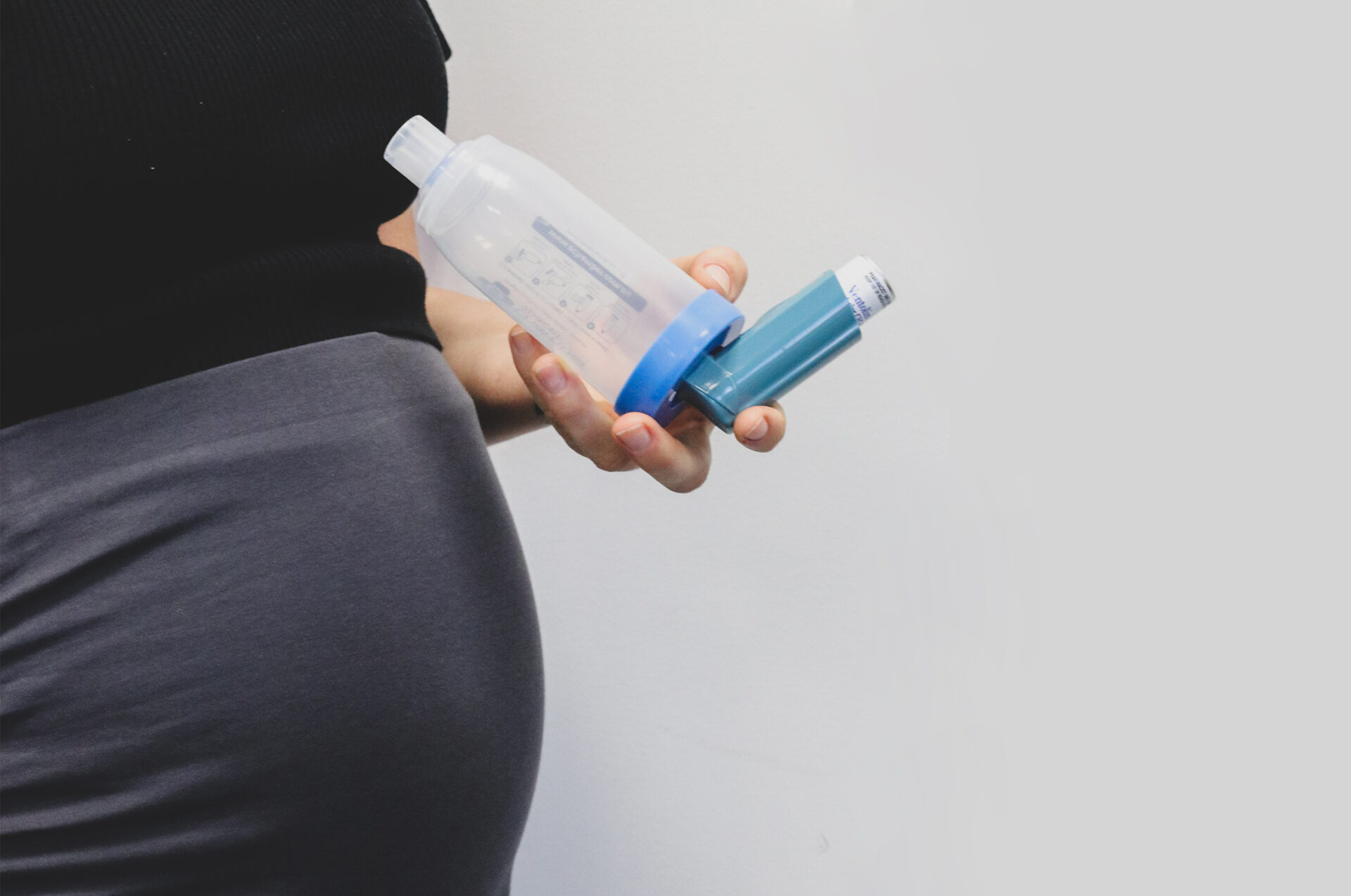Asthma affects 13% of Australian pregnancies, and children born to mothers with asthma are at increased risk of poor perinatal outcomes, wheeze, asthma, and adverse developmental outcomes. Interventions during pregnancy have the potential to alter the life course of health or disease.
We aim to: (1) develop novel models-of-care for the management of asthma during pregnancy, including virtual models; (2) improve clinician training and develop resources to assist clinicians in managing pregnant women with asthma; (3) host roundtable discussions with key stakeholders to inform research agendas in this area, and (4) develop consensus statements on the management of asthma during pregnancy.
The Virtual Model of Antenatal Asthma Care Study

The Virtual Model of Antenatal Asthma Care (VMAC) study evaluates the suitability of 2 types of asthma care in pregnancy. 1) virtual (tele/video conferencing) and 2) face-to-face (in person). This study is being conducted by a team of researchers from the John Hunter Hospital, the Hunter Medical Research Institute and the University of Newcastle.
Uncontrolled asthma in pregnancy may harm the mother and the baby. Self-management education and clinical care may help to control asthma throughout pregnancy. Traditionally, it is provided as a face-to-face service which largely depends on the availability of both the mother and the healthcare team. To address this, we have developed a virtual model of care to provide the same service remotely (i.e., via tele or video conferencing). Women can access care at a convenient place and time. In this study, we are testing the suitability of this new approach.
We are looking for adult pregnant women with asthma who have access to a telephone. Participants will be randomised to one of the two study groups. Participants in group one will receive 2 virtual consultations on asthma management in pregnancy and participants in group two will receive 2 face-to-face consultations on asthma management in pregnancy.
The main highlights of the VMAC study include:
- A telehealth-based study: all assessments and follow-ups are completed over the phone. The intervention module will be delivered virtually OR face-to face (randomisation selected)
- Flexible interview schedule to suit the participants’ convenience
For a detailed description of the VMAC study including eligibility criteria, please read our participant information sheet.
Project status
Current
